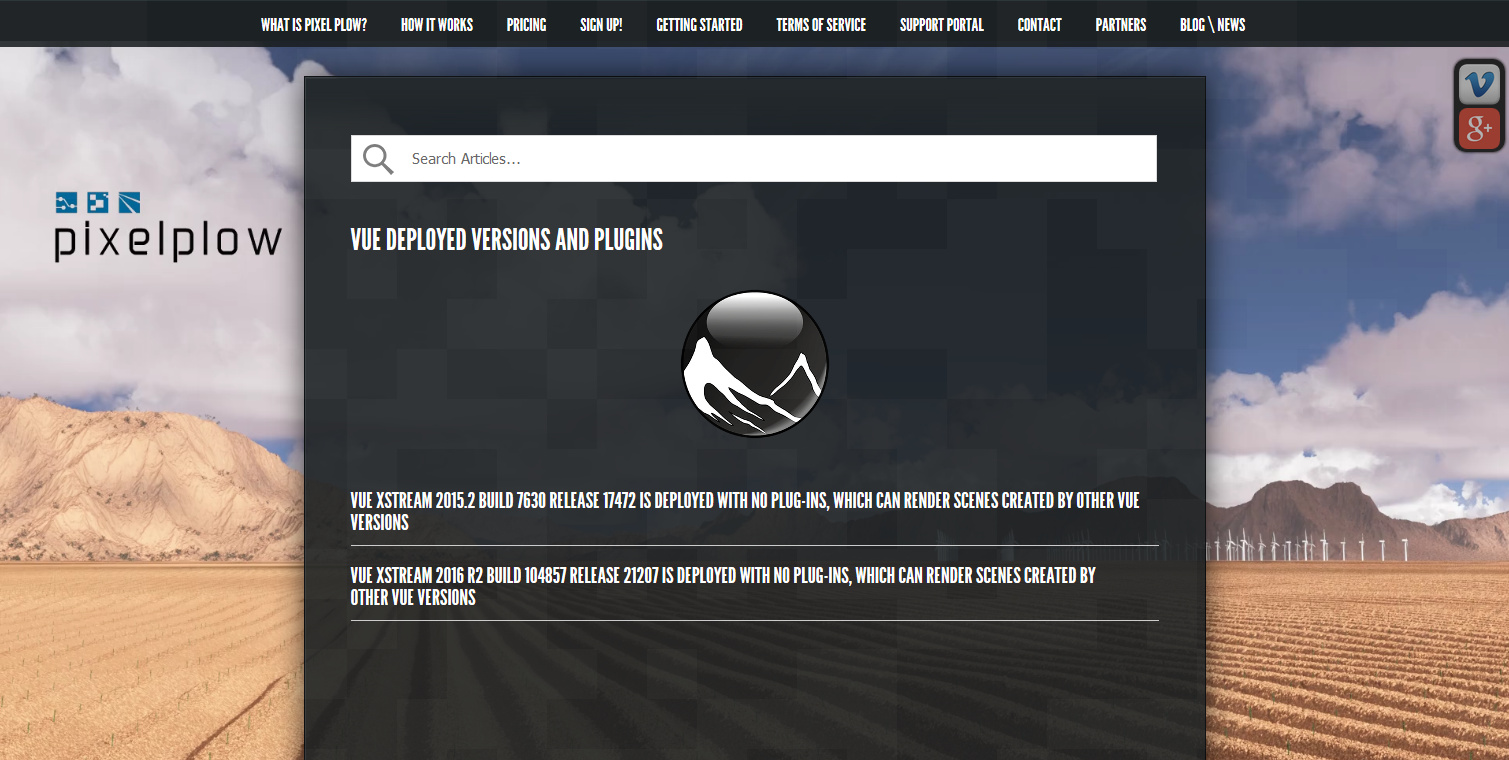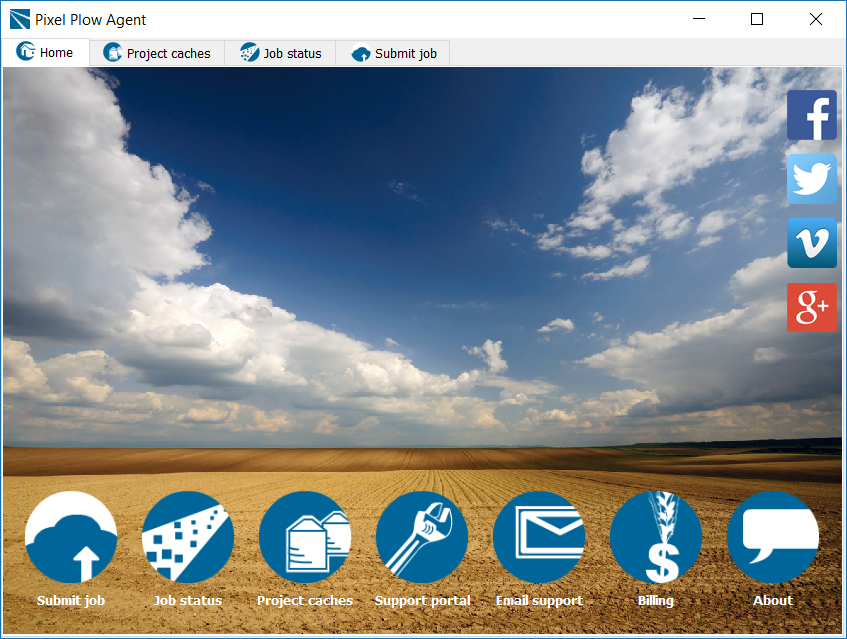According to their 20th June 2017 News posting, the popular online render-farm Pixelplow now supports scene files from Vue xStream 2016 R2, which can of course also render files created by the lesser versions of Vue 2016…
Their Vue job upload guidelines are here. By my calculations, it should cost a little under $1 to do a single-frame final scene render that would take 8-10 hours overnight on a modern home PC (Vue is CPU dependent, seeing no benefit from a graphics card on final renders).
Pixelplow also have a polished new Agent software, for uploading and job management…
“The new agent gets rid of the sometimes-confusing agent menu, and instead centralizes all tasks in a tabbed window.”
Those with slow broadband upload speeds might need to factor in an hour to upload the final scene file, which could easily weigh in at from 150Mb to 600Mb or even more. So far as I can tell the new Agent software does not include a bandwidth limiter feature. In which case slow broadband users would need to use NetLimiter 4 ($’s) to cap the Agent’s upload speed, and thus enable you to surf the Web while also uploading. (At summer 2017 there’s no genuine Windows freeware that can throttle uploads, I’ve looked).
The tight integration of Poser 11 with Vue 2016 basically means that Poser has pay-as-you-fo render-farm support from Pixelplow. Pixelplow only supports Vue on a single CPU for still renders, though. I assume that means a fast quad-core CPU, giving four-core rendering.
Pixelplow is the only service I can find that’s pay-as-you-go, and with just a $10 deposit down, and affordable per-render prices too. If you do 30 big scene renders a year, at $3 each (two small tests and a big 4000px final) would give you change from $100 a year. Admittedly, that cost might be higher if you wanted 300dpi and 6000px and most of the quality settings at Max. on all your final renders. In which case you might also have to wait a while for such renders to finish, even with a professional render farm pounding away at them.
Update: two other render farms considered.
Blender-heads may also be interested that their 29th June News posting states…
“… we hope to start working through any issues that exist with our GPU farm by releasing support for Blender Cycles GPU rendering. It’s available now to all customers, if you want to take it for a spin.”



